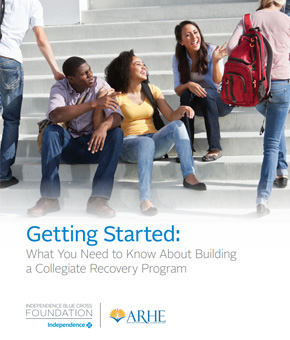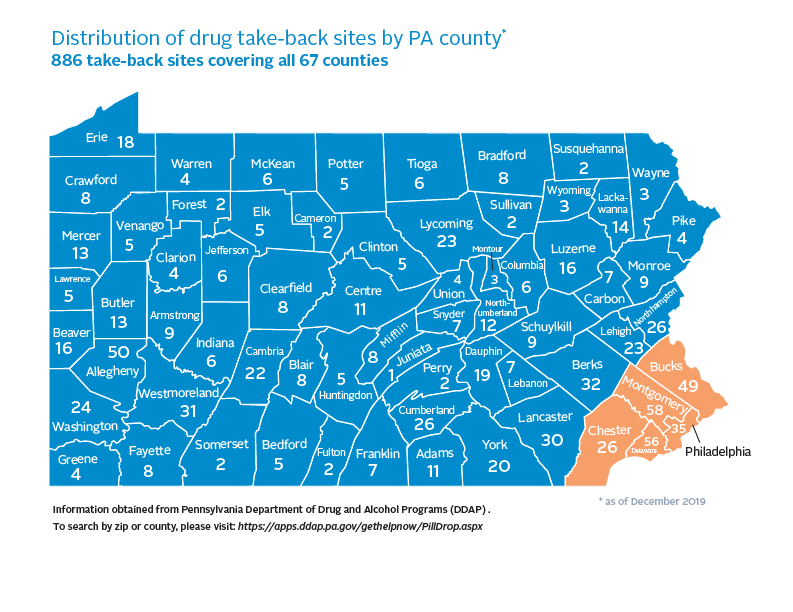-
Areas of Impact
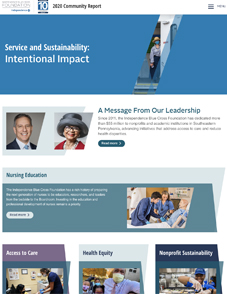 Community Report
Community ReportWe're proud to support organizations dedicated to improving the health of the community through leadership, collaboration, and innovation.
Learn More -
President's Message
 Community Report
Community ReportWe're proud to support organizations dedicated to improving the health of the community through leadership, collaboration, and innovation.
Learn More -
Board of Directors & Officers
 Community Report
Community ReportWe're proud to support organizations dedicated to improving the health of the community through leadership, collaboration, and innovation.
Learn More -
Leadership Team/Staff
 Community Report
Community ReportWe're proud to support organizations dedicated to improving the health of the community through leadership, collaboration, and innovation.
Learn More -
FAQ
 Community Report
Community ReportWe're proud to support organizations dedicated to improving the health of the community through leadership, collaboration, and innovation.
Learn More

We're proud to support organizations dedicated to improving the health of the community through leadership, collaboration, and innovation.
Learn More-
Blue Safety Net
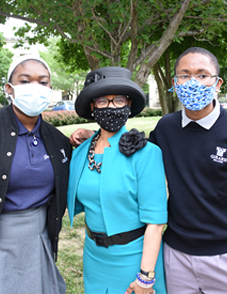 Advancing Mental Health in the Community
Advancing Mental Health in the CommunityWe're leading initiatives to increase access to mental health resources and treatment for underserved youth and the health care workforce.
Learn More -
Healthcare Scholars
 Advancing Mental Health in the Community
Advancing Mental Health in the CommunityWe're leading initiatives to increase access to mental health resources and treatment for underserved youth and the health care workforce.
Learn More -
Institute for Health Equity
 Advancing Mental Health in the Community
Advancing Mental Health in the CommunityWe're leading initiatives to increase access to mental health resources and treatment for underserved youth and the health care workforce.
Learn More -
Mental Health
 Advancing Mental Health in the Community
Advancing Mental Health in the CommunityWe're leading initiatives to increase access to mental health resources and treatment for underserved youth and the health care workforce.
Learn More -
Nurses for Tomorrow
 Advancing Mental Health in the Community
Advancing Mental Health in the CommunityWe're leading initiatives to increase access to mental health resources and treatment for underserved youth and the health care workforce.
Learn More -
STOP Program
 Advancing Mental Health in the Community
Advancing Mental Health in the CommunityWe're leading initiatives to increase access to mental health resources and treatment for underserved youth and the health care workforce.
Learn More -
Past Programs
 Advancing Mental Health in the Community
Advancing Mental Health in the CommunityWe're leading initiatives to increase access to mental health resources and treatment for underserved youth and the health care workforce.
Learn More -
General Eligibility Guidelines
 Advancing Mental Health in the Community
Advancing Mental Health in the CommunityWe're leading initiatives to increase access to mental health resources and treatment for underserved youth and the health care workforce.
Learn More

We're leading initiatives to increase access to mental health resources and treatment for underserved youth and the health care workforce.
Learn More-
Community Report
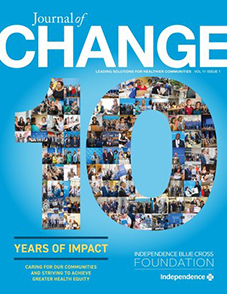 Journal of Change
Journal of ChangeOur award-winning publication explores the rapidly shifting health care landscape and showcases new ideas and initiatives that affect the way we live.
Learn More -
Journal of Change
 Journal of Change
Journal of ChangeOur award-winning publication explores the rapidly shifting health care landscape and showcases new ideas and initiatives that affect the way we live.
Learn More -
Nursing Internship Program Evaluation
 Journal of Change
Journal of ChangeOur award-winning publication explores the rapidly shifting health care landscape and showcases new ideas and initiatives that affect the way we live.
Learn More -
Supporting Treatment and Overdose Prevention Initiative
 Journal of Change
Journal of ChangeOur award-winning publication explores the rapidly shifting health care landscape and showcases new ideas and initiatives that affect the way we live.
Learn More -
Blue Safety Net County Snapshot
 Journal of Change
Journal of ChangeOur award-winning publication explores the rapidly shifting health care landscape and showcases new ideas and initiatives that affect the way we live.
Learn More -
Blue Safety Net Needs Assessment
 Journal of Change
Journal of ChangeOur award-winning publication explores the rapidly shifting health care landscape and showcases new ideas and initiatives that affect the way we live.
Learn More -
Healthy Futures Resource Book
 Journal of Change
Journal of ChangeOur award-winning publication explores the rapidly shifting health care landscape and showcases new ideas and initiatives that affect the way we live.
Learn More

Our award-winning publication explores the rapidly shifting health care landscape and showcases new ideas and initiatives that affect the way we live.
Learn More
